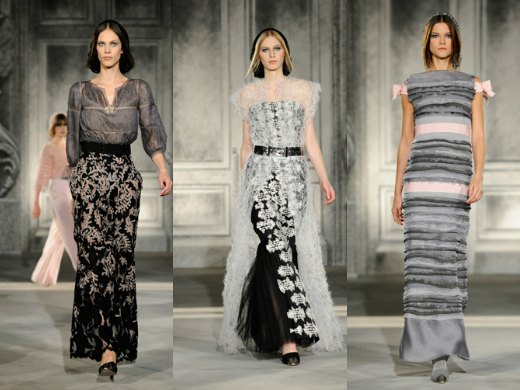A lot can change in one hundred or so years. A century bears witness to the life cycle of generations, the beginning and ending of wars, the demise of old technologies, and the rise of new, the evolution of culture, the ebb and flow of economy, the parade of styles and trends, and the growth or stagnation of businesses, among many, many other things. For a business to realize fifty, seventy-five or one hundred years of prosperity is quite remarkable. And yet, we often forget that even monolithic industries of the present were once fledgling businesses or trades, founded by hardworking craftspeople with a talent, a vision, and a willingness to make a go of it by opening a single storefront.
This year, Prada S.p.A., the Italian, luxury fashion house, celebrates one hundred years in business. Brothers Mario and Martino began their business selling Italian leather goods, and, surprisingly, imported English steamer trunks, in Milan, Italy. The business continued to prosper under the direction of Mario’s daughter, but it was his granddaughter, Miuccia, with the help of her husband, Patrizio Bertelli, who began to transform Prada into the distinctive and diversified worldwide design brand so widely respected today.
Gucci, a slightly younger, but equally renowned Italian brand, was founded in 1921 by Guccio Gucci in Florence, Italy. The Gucci story is also a compelling testament to humble beginnings, in that its founder worked in several exclusive hotels as an immigrant in Paris and London before returning to his Florentine hometown to start his own business. His inspiration? The fabulous luggage of hotel clientele he encountered while working. His business focused on exceptional, local craftsmanship and fine finishing, and in time, the brand became synonymous with Florence.
Similarly, the multinational Italian luxury brand, Fendi, which is currently under the creative direction of Karl Lagerfeld, began in 1925 as a fur and leather shop in Via del Plebiscito, Rome, owned by Edoardo and Adele Fendi. Still a family design venture, Silvia Venturini Fendi is responsible for Fendi’s signature Baguette, Spy bag, B Fendi and Fendi Men collection.
Among the most compelling of the Italian luxury brand stories is that of Salvatore Ferragamo, who took his talent and determination to Hollywood in 1923, where he opened the Hollywood Boot Shop and catered to stars of a bygone era. Eventually, he returned to Italy, and opened a shoemaking company in Florence in 1928. The economic disaster of the early 1930’s forced Ferragamo to file for bankruptcy, but he recovered quickly, and by 1938, had purchased Palazzo Spini Feroni, a renowned palace of Florence, which, to this day, is the company’s flagship store.
The new kids on the Italian luxury design block are Dolce & Gabbana, who launched their brand and store in Milan 1985 after a successful run as a design consulting studio. By 1990, they, too, were worldwide.
Though individually distinct, gorgeous and globally recognizable, what all of these design brands have in common is a fundamental commitment to quality materials, quality construction, and craftsmanship in the tradition of Italian masters. Each is also a testament to hard work, family ownership and generational talent. Yes, they are expensive, and represent a significant investment of resources. Consider, however, that a handbag or tote made by one of these designers can be expected to last for many years, and remain an iconic style statement that rises above trends and fads. Goods as well-made as these hold up for decades when cared for properly. And these are brands the makers stand behind; service and care offered to their customers is unparalleled. To this I can personally attest.
Online you can find a generous selection of these Italian-borne goods, from each of the enduring design houses mentioned here. The selection caters to women and men, and ranges from handbags and luggage to backpacks, briefcases and iPad covers.
Tis the season….but in truth, a designer handbag is for any season….and a wonderful gift for a loved one (or yourself!).


